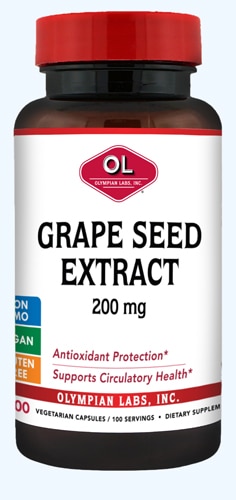To mix or not to mix — that is the question.
Dietary supplements have become increasingly popular in the last few years; but just because you can buy them at grocery stores or online through retailers like Vitacost.com doesn’t mean that they come risk-free. Dietary supplements — much like medications — can have drawbacks or side effects — especially when you take the two together. Some dietary supplements work well with medications, but at times, they can be like oil and water: they just don’t mix. Before combining any pair (or multiple supps and meds), consider the following guidelines.

A Guide to Mixing Medications & Supplements
Multivitamins
Multivitamins claim the top spot for the most-purchased dietary supplements. These popular supplements offer a variety of benefits (including filling in nutrient "gaps" if you're not getting what you need through diet alone) and are considered generally safe; but sometimes multivitamins can interfere with common medications.
If you’ve ever taken certain antibiotics — such as fluoroquinolones (e.g., ciprofloxacin, levofloxacin, moxifloxacin, etc.) — you may already know that you should avoid taking minerals such as calcium and magnesium within a two hour window of taking antibiotics in this class. (Note: Moxifloxacin requires a four-hour wait time.) These minerals can interfere with the intended effects of the medication. Multivitamins (which often contain calcium, magnesium and other minerals that interact with fluoroquinolone antibiotics) should be similarly timed.
Multivitamins can also interact with certain medications taken for cholesterol and diabetes, such as colesevelam or sevelamer (prescribed for people with kidney disease). Allow at least two hours between taking a multivitamin and these medications.
Additionally, caution is also needed if you're taking the diet medication orlistat. Orlistat works by preventing the body from absorbing fat; but in the process, it can block the absorption of fat-soluble vitamins, including vitamins A, D, K and E. If you are taking orlistat, you may already be at risk for deficiency of these vitamins. Typically, this problem is solved easily by taking a multivitamin containing these nutrients. Just be sure to allow a few hours to pass before taking your multi.
Soy and soy-containing supplements
You might think of soy in its popular food forms -- whole as soybeans or edamame, processed into tofu or tempeh or drinkable as soy milk. But soy has industrial uses, too. Manufacturers often use soy in rubber, plastics, adhesives, coatings and solvents. You might even see it listed as ingredient in
personal care products like lotions or hair products. When it comes to food and dietary supplements, you’ll often find soy in the form of
soy lecithin — a binder that helps materials stick together and blend smoothly during production.
Soy has been shown to have some health benefits, and some
women may consume soy or soy-based products during menopause to help relieve discomforts. Yet, it's important to note that soy mimics the effects of estrogen in the body, which can be a problem for women with breast cancer. In fact, if you have estrogen-dominant breast cancer, your doctor may tell you to avoid eating soy foods or taking dietary supplements that contain soy.
Some studies suggest that soy interferes with tamoxifen, a medication used to treat estrogen-dominant breast cancer. However, other studies suggest soy either bears no effect on tamoxifen or even boosts the effects of the cancer drug.
Also to note: Some data shows that soy-containing supplements may
weaken the effects of codeine — which may not be ideal if you're taking codeine for pain or cough.
St. John’s wort
St. John's wort is well known to interfere with the effects of many medications, including:
1. Antidepressants
- Selective serotonin reuptake inhibitors: citalopram, escitalopram, fluoxetine, fluvoxamine, paroxetine, sertraline
- Tricyclic antidepressants: nortriptyline, imipramine, amitriptyline
2. HIV/AIDS medications such as ritonavir
3. Antibiotics: clarithromycin and clarithromycin
4. Triptans, for migraines
5. Warfarin, a blood thinning medication
6. Phenytoin, for seizures
Additionally, if you are taking birth control to avoid pregnancy, be sure to talk to your healthcare provider or pharmacist before taking St. John's wort, as it may diminish the intended effects of your birth control medication.
Other dietary supplements (with warfarin)
Although the Food and Drug Administration (FDA) has approved several new blood thinners over the last decade, warfarin is still one of the most commonly prescribed medications. If you're taking warfarin or something similar, take caution with supplements such as ginseng, gingko biloba, green tea, garlic and St. John’s wort. Although these supplements are not considered blood thinners, they may increase some of the warfarin’s blood thinning effects.
In summary
Takin supplements is a great way to support your overall health and wellness. But if you're taking medications of any kind, it's important to discuss your supplement regimen with a healthcare provider. Educate yourself to stay safe -- and to reap the benefits of your dietary supplements.




